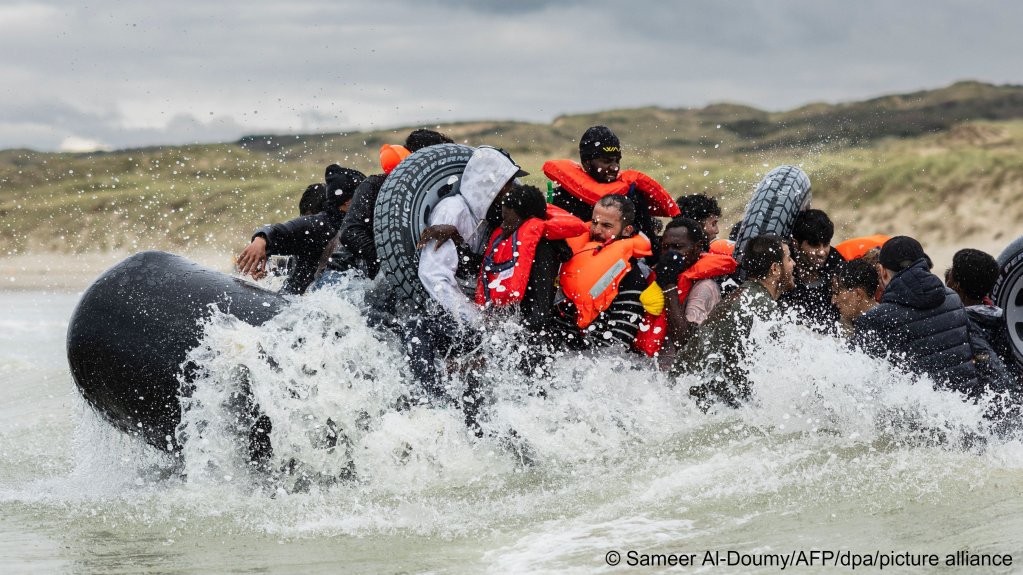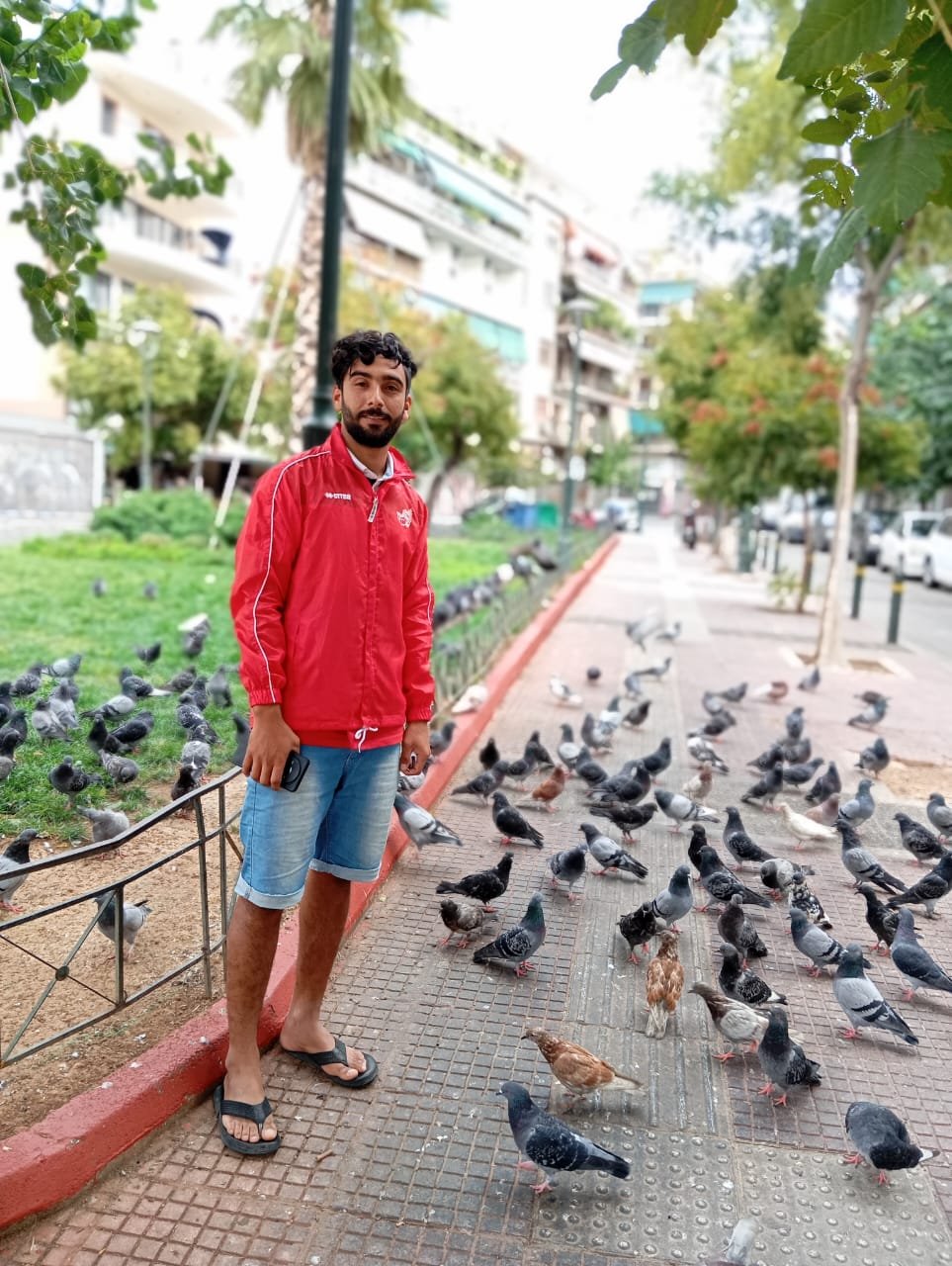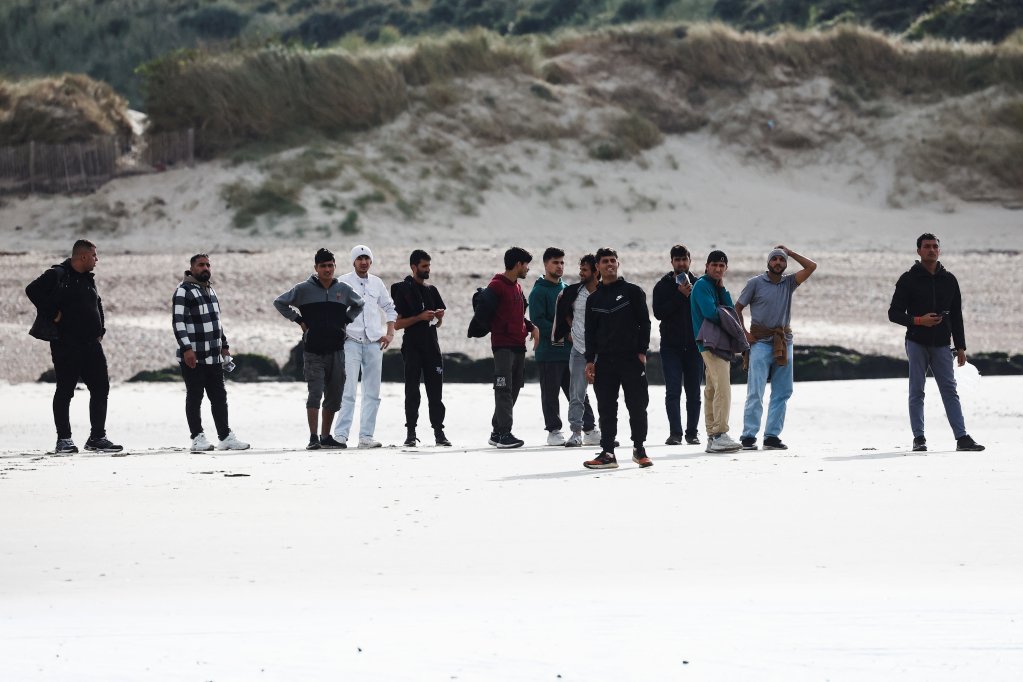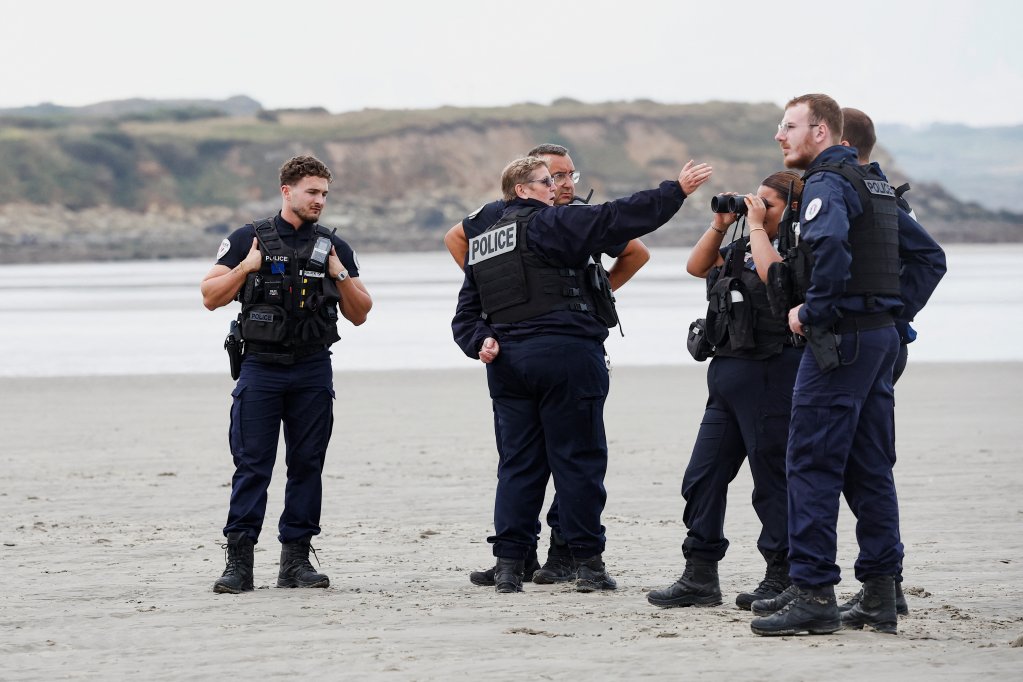Channel crossings from Calais and elsewhere on France's northern coast are becoming increasingly dangerous. This year, more than 60 migrants have died trying to reach England. Adding to the pain of these losses is another trauma for survivors: the missing, who are not included in the authorities' tally.
Charlotte Boitiaux, special correspondent in Calais,
Above Calais, the sky is bright blue. The clouds that had been accumulating for several days have disappeared. "This week, departures [to the United Kingdom] are at a standstill," Khorchid, an Afghan in his thirties, tells us. He is wearing short sleeves despite the biting cold. He squints, bothered by the sunlight. He got this announcement from the smugglers. "The weather is not good, there is too much wind." That means the waves will be high and the crossing impossible.
It is difficult to imagine the fury of the Channel in such mild weather. And yet, the information is known by everyone, migrants and associations alike. "The weather window has closed, it is no longer optimal for crossings in the coming days," Flore Judet, a member of the Auberge des migrants, which helps migrants, also said. "We know this by cross-referencing several data, and by looking at the wind strength on the Windy application, among other things. Don't trust the good weather, it is misleading and has nothing to do with the sea."
This pause in crossings seems welcome for the teams of volunteers; exhausted by the repeated tragedies of recent weeks. On October 23, three migrants died just two kilometers from Calais. On October 17, a baby was found unconscious in the water. On October 5, a two-year-old child, two men and a woman died, crushed on overloaded boats according to the initial investigation. But the worst shipwreck of the year, so far, was on September 3. At least 12 migrants, half of them minors, died when their boat broke apart at sea.

Since late October, at least 12 decomposing bodies have been found on the beaches of Pas-de-Calais. In total, more than 60 people have died in this narrow stretch of sea between France and the United Kingdom – a record since the emergence of the "small boat" phenomenon in 2018. And the toll could rise once the identification of the bodies is complete.
Read AlsoChannel: Three more bodies found on French beaches
'We listen to the testimonies, we search'
Chawiche*, a 25-year-old Iraqi, hopes that his friend will be found and identified quickly. On October 30, it was 7 a.m. in Boulogne-sur-Mer when he tried to board a dinghy to reach England. "The water was cold, and I went in as I was, dressed, with nothing else. The smugglers don't give us life jackets," he explained, with an empty gaze.
"I went into the water, and very quickly, I was submerged. I was with my friend Abbas, then I lost sight of him in just a few seconds." Abbas, 21, has gone missing. His body has not been found to this day, according to his relatives who have scoured the hospitals in the region. His mother, in Iraq, contacted by InfoMigrants, is begging to recover her son's body. "He called me to tell me he was crossing, since then I've been trying to call him back but I only get his answering machine," she said in Arabic.
According to press releases from the Maritime Prefecture of the Channel and the North Sea (Premar), four people lost their lives that day. But Abbas is not one of them. The prefecture does not count the missing persons reported by relatives, only the people whose remains are visually spotted in the water by French rescue services before disappearing.

"This does not mean that we do not believe the survivors," says the spokesperson for Premar. "We listen to the testimonies that reach us during a rescue operation. If we are told that there are still people in the water, we obviously continue the search," the spokesperson explained. "But if the people in question are not found, we do not record these deaths in our counts."
'No one is looking for Abbas'
This reality is traumatic for the survivors, amplified by the end of a search. "There comes a time when we decide to end the search operations depending on the state of the sea, the arrival of nightfall, multiple factors," the maritime authorities explained.

"No one is looking for Abbas," Chawiche told InfoMigrants. "I can't think of anything else."
How many people are lying at the bottom of the water without having been recorded, and without the sea returning their bodies? "The survivors tell us that they embarked with relatives that they never saw again, we are informed of these disappearances. It is very hard for them," Flore Judet, from the Auberge des Migrants, added.
A few days earlier, Osama gave a similar testimony to InfoMigrants. This young Syrian man has been looking for his father since the October 23 shipwreck. "It was night, I couldn't see anything around me. Once rescued, I lost consciousness. When I woke up, my father wasn't there. I asked everyone: hospitals, police stations, associations but no one had seen him." Fifteen people are said to have drowned that day, according to Utopia 56. Authorities only registered three deaths.
In November 2023, a year ago, Eskiel, an Ethiopian, had already disappeared after a shipwreck. He was 37 years old and was on board a boat bound for England, but his name does not appear among the two official victims. Since then, the family has been trying to reconstruct the circumstances of his disappearance.

For the survivors, there remains a tiny hope: justice. "The public prosecutor's office can take over our [sea rescue] operations," Premar explained. An investigation was indeed opened by the Boulogne-sur-Mer public prosecutor's office, after the first bodies were discovered on the beach in early November. But the process is not automatic. It takes time, and it is complicated by the language barrier. "I don't know anything about this country, who should I contact to help me find Abbas?" asked his cousin, who arrived in Calais the day after the tragedy.
Read Also'My father disappeared in the Channel': A survivor recalls migrant boat sinking off Calais
'I saw people disappear into the water'
These disappearances and deadly crossings haunt those who would like to leave today. Mohamad, a young Iraqi in his twenties, encountered not far from the Calais hospital, seemed haggard. Like Abbas, Osama, and Chawiche, he tried to cross the Channel on October 30 from Boulogne-sur-Mer. Like so many others, his boat was a little further away offshore.
"But the water rose so quickly," he said, his voice trembling. He didn't have time to realize that he was being caught by the rising tide. "In a few seconds, my feet were no longer touching the seabed. I was struggling... I saw people calling for help and then disappearing into the water." Mohamad was eventually rescued by the French authorities. "Where are the others?" Since then, the sea has terrified him.
"I tried to cross again at the beginning of November. But on the beach, the police stabbed our boat with a knife while we were running to put it in the water. I saw the boat deflate. Everyone got on anyway. I turned around." Mohamad would later learn that the damaged boat had managed to make it to the port of Dover, England. "That's how it is," he sighed.
Not far from him, Mortaza, a 21-year-old Afghan, stands out from the rest of the group. Nonchalant, he claims not to think about the deaths in the Channel. "Why dwell on it? I have no choice... Besides, I don't even know how to swim."
Mortaza says he bought a life jacket at Decathlon a few days ago. A purchase that will save his life, he thinks. "There are 60 dead but there are also thousands of people who arrived safe and sound on the other side. I prefer to believe that I will be part of this number."
*The first name has been changed
